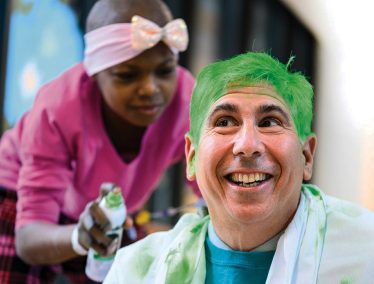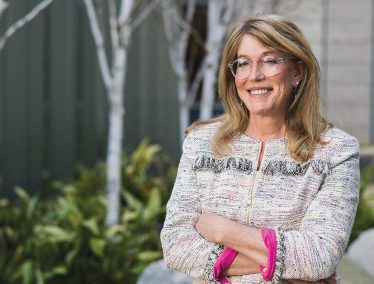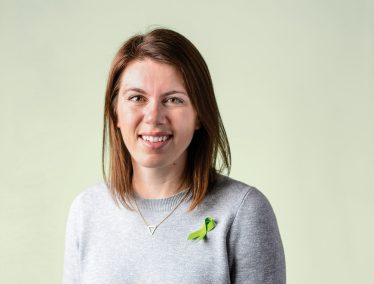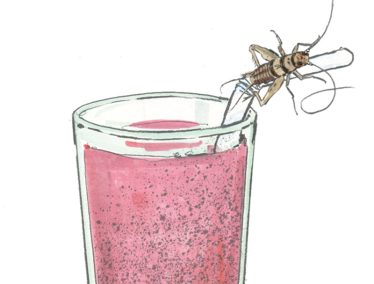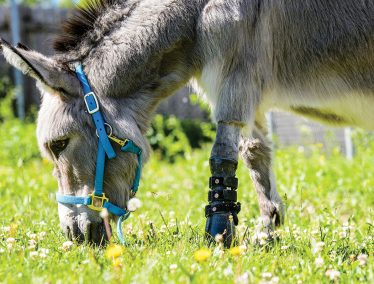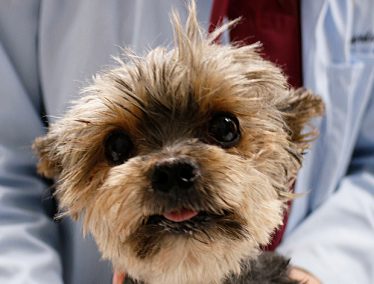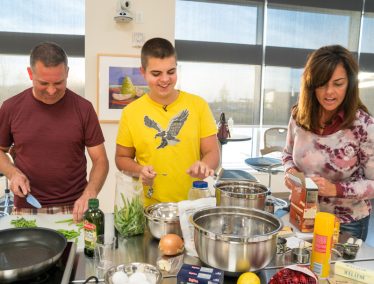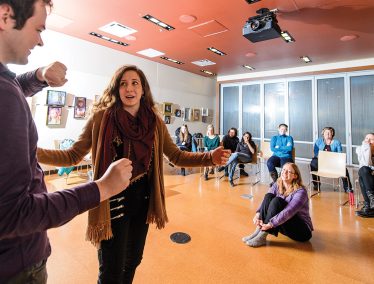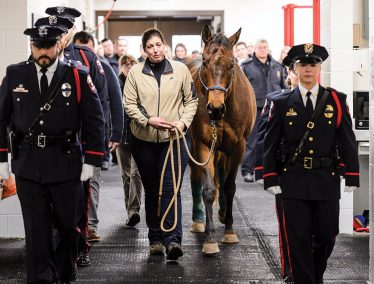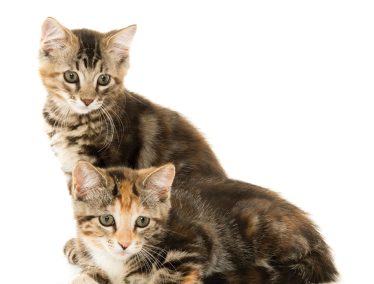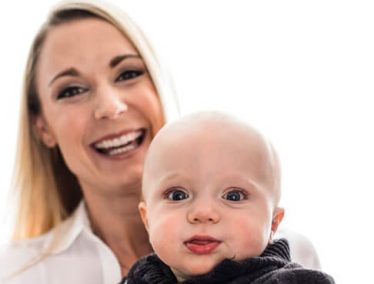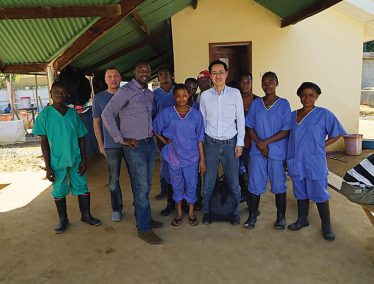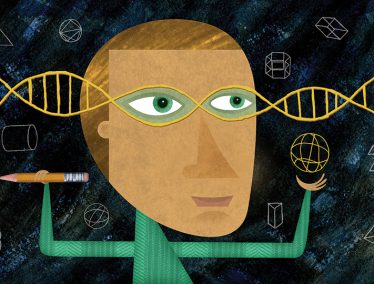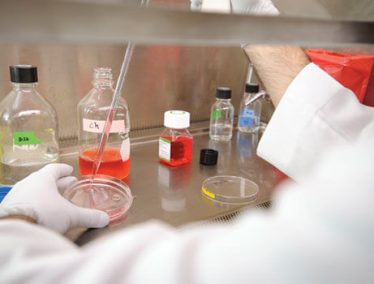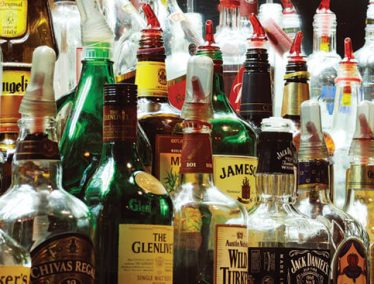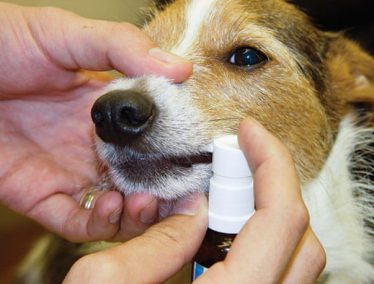David Margolis MD’89 is both an eminent pediatric oncologist and a zealous fan of the Milwaukee Bucks. With a little spray paint, he now combines his two passions.
Find Articles
This page presents a paginated collection of all On Wisconsin stories by default. You can use topic and year filters to narrow the list of stories.
Selected topic: Health & Medicine.
129 stories matched. Showing page 4 of 5.
Filters
Filter by Year
Filter by Topic
Pregnant women who travel long distances to work face increased risks of adverse birth outcomes.
As a nationally renowned sex reassignment surgeon, Marci Bowers ’80 — a transgender woman herself — is helping her patients find joy and belonging.
Following a stint as a veterinarian, Larsen found her true passion: drug development for animals. Courtesy of UW School of Pharmacy
First a doctor to animals, Diane Larsen ’80, DVM’90, PhD’99 now develops medicines for them. She heads drug development for the animal division of the global…
Estrin introduced computing technology to medical research, leading the way to today’s health-care systems. Wikimedia Commons
Thelma Estrin ’48, MS’49, PhD’52 blazed a trail in the field of medical informatics (the practice of applying computers to medical research and treatment). Although she always had an aptitude…
Dickie, pictured in 1974, played a leading role in treating tuberculosis throughout Wisconsin. Submitted photo
When Helen Dickie ’35, MD’37 joined the UW medical school faculty in 1943, tuberculosis was still a threat. Dickie worked tirelessly to detect and treat the disease until…
Disch has long been an advocate for improving health care in the U.S. “I want to blow up our system,” she said in 2007. Submitted photo
Joanne Disch ’68, a former professor of nursing at the University of Minnesota, is known for improving patient safety and…
As a pharmaceutical leader with many roles, Saleki-Gerhardt encourages other women to “stretch themselves” and get outside their comfort zones. Courtesy of UW School of Pharmacy
Azita Saleki-Gerhardt ’88, MS’91, PhD’93 has gone from working in the lab to the C-suite at one of the world’s 10…
McCoy, pictured in her bacteriology lab in 1953, became one of the first women in science to earn a full professorship at the UW. UW Archives S08175
Bacteriologist Elizabeth McCoy ’25, PhD’29 joined the UW faculty in 1930, and in 1943, she became the second woman at the…
Valerie Donovan ’11, MA’12 coordinates resources and support networks across campus.
A UW researcher finds that a different kind of breakfast could improve health.
Bryce Richter
Ferguson the miniature donkey got a hand — actually a leg — from the School of Veterinary Medicine recently to replace a deformed hoof. The procedure was a first for the UW’s large animal hospital: amputation with a prosthesis is complex and rare for…
A UW program is working to reduce the shortage of ob-gyn physicians in rural areas.
When UW surgeon Susan Pitt captured an homage to a New Yorker cover on her smartphone with help from some colleagues at a conference, she created a Twitter meme that spread across the globe. Pitt, an assistant professor of surgery, used a hashtag launched by a female medical student…
When drugs fail, epilepsy patients turn to this UW cooking class to learn how to curtail seizures by cutting carbs.
Improv techniques help medical professionals learn creativity and spontaneity.
Marccophoto/ISTOCK
Electronic cigarettes can’t be sold or marketed as smoking cessation aids, but many smokers see so-called vaping as a desirable way to quit.
The problem is, many of them get “stuck” using both this option and traditional cigarettes, says Doug Jorenby MS’86, PhD’91,…
Apart from being quadrupedal, furry, and commonly found on your couch, cats and dogs have little in common. But the two species share one more — much less fortunate — trait: both can contract canine influenza.
Sandra Newbury DVM’03, clinical assistant professor and director of the UW School of…
When her mother died of Huntington’s, Shana Martin Verstegen ’02 didn't want to know if she’d get it, too — until deciding to become a mom herself.
People of color are more likely to get Alzheimer’s disease. The children of former Badger football star Lou Holland ’65 are among those that UW researchers are studying to try to learn why.
UW–Madison has resources to help students struggling with substance abuse — but advocates hope to do much more.
As scientists unravel the mysteries of human DNA, genetic counselors stand ready to interpret what it all means.
And see Spot stop itching, thanks to a new method to ease dog allergies.
